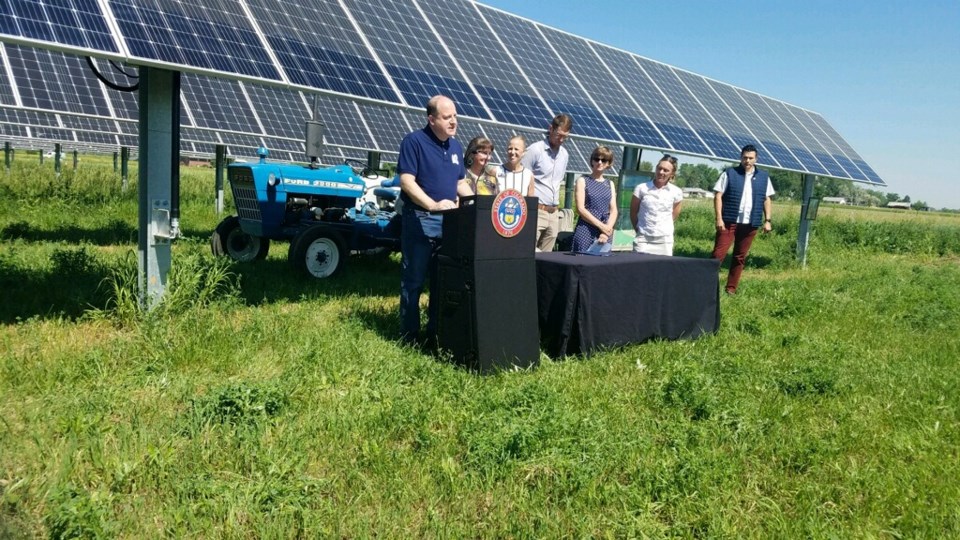Sub: The bill calls for $3 million to advance Colorado’s renewable energy and energy efficiency
Gov. Jared Polis praised Longmont’s Jack’s Solar Garden, Tuesday, as a prime example of local farmers adapting new ways of growing sustainable crops while keeping the state’s agricultural industry competitive in national markets.
“Farms like this (Jack’s Solar Garden) will help Colorado remain a major agriculture producing state for years to come,” Polis said on a sweltering morning, surrounded by lawmakers and the farm’s owner Byron Kominek.
The Kominek family has grown wheat and hay on the 24-acre spread since 1972. Last year, a 7 ½-acre portion of the land was converted into a 1.2 MW community solar garden — enough to power 300 homes.
Jack’s Solar Garden is now a model for farmers along the Front Range on how to produce renewable energy while improving agriculture production through agrivoltaics, which merges solar power and agriculture production, Polis said. Jack’s Solar Garden is leading the country in researching crop and vegetation development under solar panels, the farm’s website states.
Jack’s Solar Garden “takes advantage of everything from Colorado’s sun and Colorado’s wind,” Polis said, later signing SB21-235 which bolsters agrivoltaics and soil health in the state.
The bill calls for $3 million to advance Colorado’s renewable energy and energy efficiency, or ACRE 3, program. At least $150,000 will be used to research and study projects related to agricoltaics.
The bill also allocates $2 million to the Conservation Services Division within the Colorado Department of Agriculture to administer voluntary soil health programs.
One of the bill’s sponsors — State Rep. Tracy Bernett — said as drought conditions persist, renewable energy produced by solar farms will be key in stabilizing agriculture production.
Agricoltaics will be especially important because Coloradans live in a “water scarce state,” Bernett said.
Seven partners — including Sprout City Farms, National Renewable Energy Laboratory and Colorado State University — are currently growing crops and researching crop development under Jack’s solar panels.
Kominek said he was honored to have the bill signing at the farm and to be recognized by Polis. Much still needs to be done to ensure solar power will fuel farm development, he said.
“This is just the start,” Kominek said. “What we learn here with this agriculture system could mean we could roll this out across the country.”



